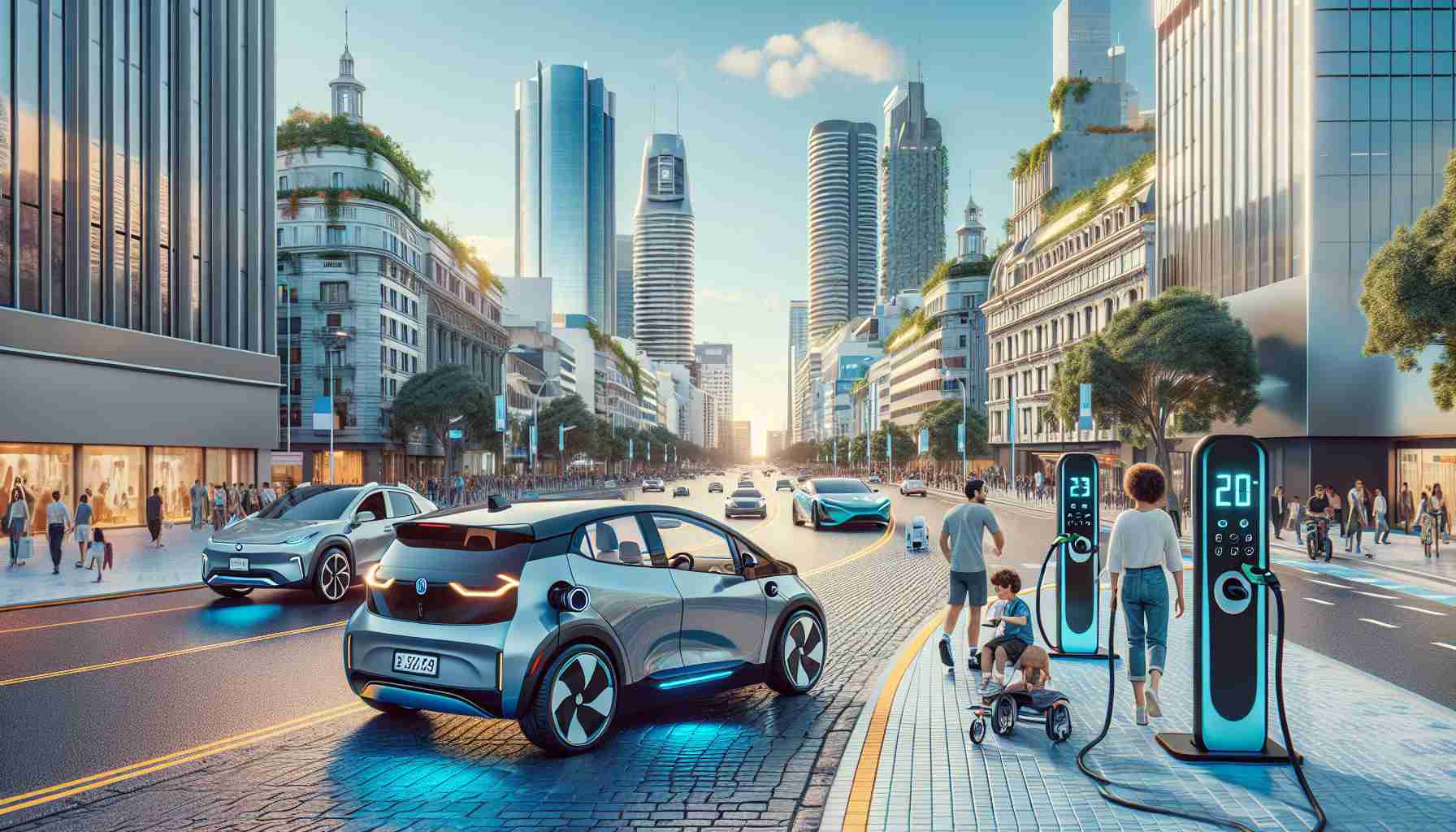Electric vehicles (EVs) are making a substantial impact in Argentina, revolutionizing the automotive industry with their energy efficiency and environmentally friendly features. While the market is dominated by traditional vehicles, the rise of EVs is undeniable.
Exploring the EV Landscape
Renowned brands like Renault, Nissan, Ford, Mercedes, and Audi have introduced their EV models to the Argentine market, catering to the growing demand for sustainable transport options. These vehicles offer improved driving experiences, enhanced safety measures, and long-term cost savings.
Tesla’s Impending Arrival
Although global giant Tesla is yet to set foot in Argentina, promising discussions between the government and Tesla’s CEO, Elon Musk, suggest a potential entry into the market by the second half of 2025. The government’s efforts to streamline regulatory processes reflect a strong commitment to facilitating Tesla’s establishment in the country.
Chinese EV Influence
Chinese EV brands have also made their mark in Argentina, providing competitive pricing options at the expense of some quality compromises. Brands like Baic, DFM, Geely, and Haval offer budget-friendly alternatives, presenting a diverse range of electric vehicles to consumers.
Affordability and Accessibility
One standout in the Argentine EV market is the domestically produced Coradir Tito S, recognized as the cheapest electric car available. This local production model addresses transportation costs and underscores the country’s potential to embrace sustainable manufacturing practices.
The Cost of Going Electric
EV prices in Argentina range from 14 million to 80 million pesos, with factors such as battery autonomy, charging time, and maximum speed influencing the final price. Consumers prioritize quick recharging and extended autonomy to facilitate daily activities, driving the demand for user-friendly and efficient EV options.
Charging and Insurance Considerations
In Argentina, recharging an EV costs significantly less than refueling a traditional combustion engine vehicle, making sustainable transport more economical in the long run. Additionally, insurance policies for EVs differ from conventional vehicles, considering unique maintenance requirements and potential risks associated with eco-friendly driving.
As Argentina embraces the transition to electric mobility, the automotive industry is poised for a sustainable transformation, marking a progressive shift towards eco-conscious transportation solutions.
The Future of Electric Cars in Argentina: Continued Growth and Challenges Ahead
As electric vehicles (EVs) gain momentum in Argentina, the future of sustainable transportation is taking shape with new implementations and considerations emerging. While the previous article highlighted the strides made in the Argentine EV market, several key questions remain unanswered, shedding light on the challenges and controversies associated with the topic.
Important Questions and Answers:
1. Infrastructure Development: How is Argentina adapting its infrastructure to support the growing number of electric vehicles on the roads?
– The government has initiated infrastructure projects to expand the network of charging stations across the country, aiming to enhance accessibility and convenience for EV owners.
2. Environmental Impact: What measures are in place to ensure that the production and disposal of EV batteries are environmentally responsible?
– Regulatory bodies are working with manufacturers to develop sustainable battery recycling programs, minimizing the ecological footprint of EV technology.
3. Policy Framework: Are there specific regulations or incentives in place to promote the adoption of electric cars in Argentina?
– Government incentives, such as tax breaks and subsidies for EV purchases, are being implemented to encourage consumers to switch to electric models, contributing to a greener transportation sector.
Advantages and Disadvantages:
While electric cars offer a multitude of benefits, including reduced emissions, lower operational costs, and enhanced driving experiences, they also come with their set of challenges. Advantages: The adoption of electric cars promotes environmental sustainability, reduces air pollution, and lowers dependency on fossil fuels. Additionally, EVs contribute to energy diversification and innovation in the automotive sector. Disadvantages: High upfront costs, limited driving range, and the need for robust charging infrastructure present hurdles to widespread EV adoption in Argentina.
Key Challenges and Controversies:
1. Battery Technology: The advancement of battery technology is essential for improving the range and recharging speed of electric vehicles. Manufacturers are under pressure to develop more efficient and affordable battery solutions to address consumer concerns about range anxiety and charging times.
2. Competitive Landscape: The influx of international and domestic EV brands in Argentina raises questions about quality control, warranty support, and service availability. Consumers are cautious about investing in EVs without a well-established support system in place.
3. Transitioning Workforce: As the automotive industry pivots towards electric mobility, the workforce requires reskilling and training to adapt to the changing landscape. Ensuring a smooth transition for existing automotive workers is crucial for the sustainable growth of the sector.
As Argentina navigates the transition to electric mobility, addressing these challenges and controversies will be pivotal in shaping a successful future for electric cars in the country.
For further insights on the global electric vehicle market trends and developments, visit International Energy Agency.












